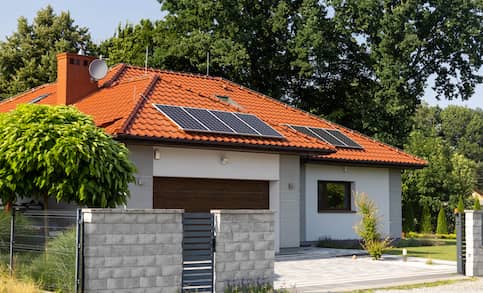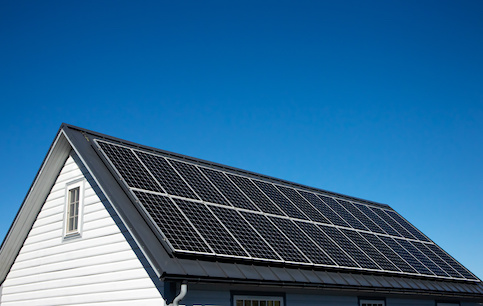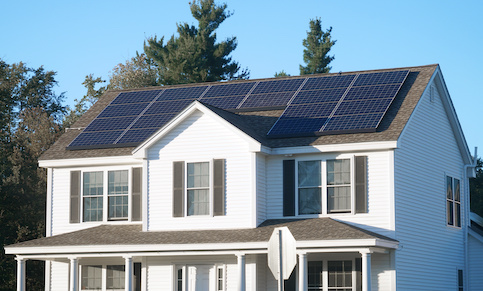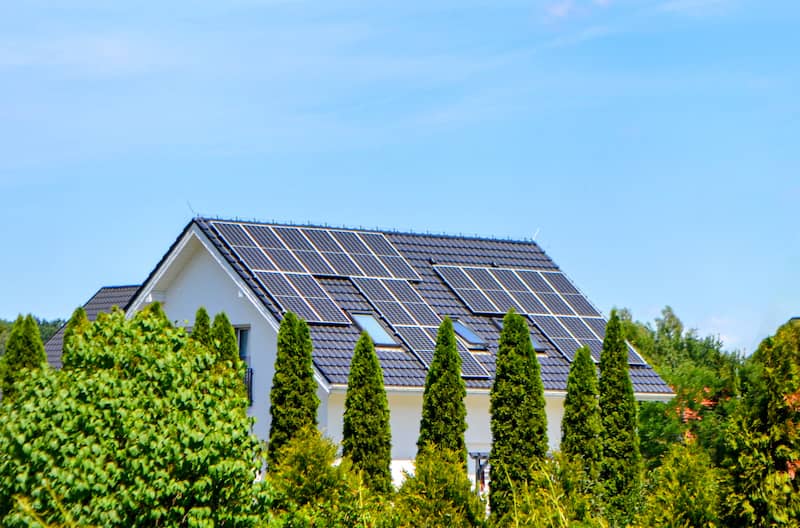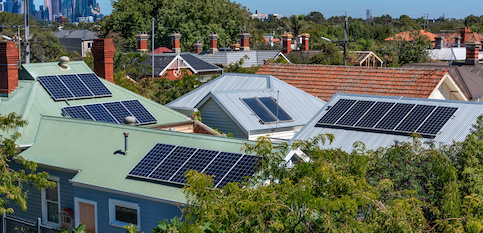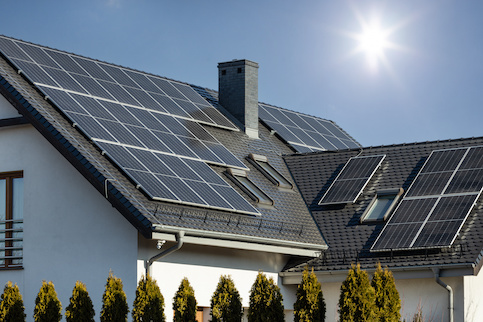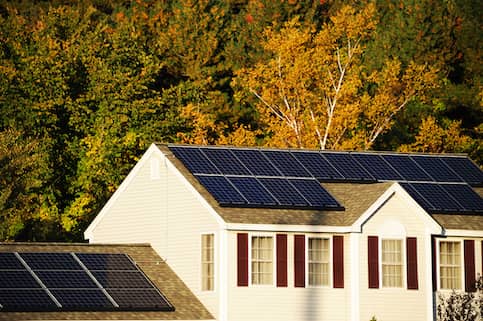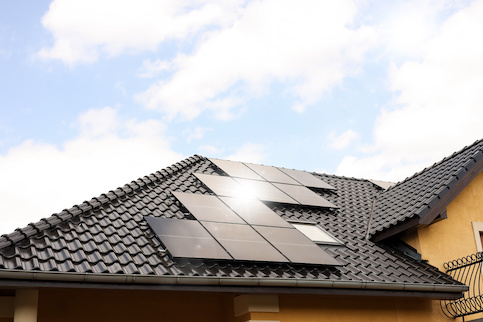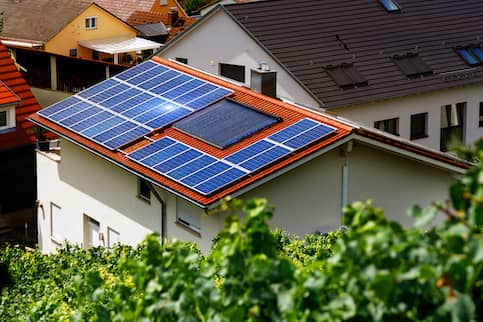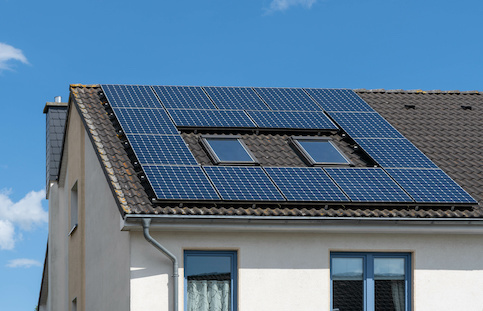What Solar Panel Grants Are Available To Homeowners?

Solar panels cost $3,500 – $35,000, depending on a variety of factors, including the quality of the panels. They can cost a considerable amount, so it’s natural to wonder how you might pay for them. Solar grants may offer a way for eligible homeowners to pay less for solar panels.
In this piece, we’ll dive into the definition of solar panel grants, types of federal grants for solar panels, how to qualify and other residential solar panel incentives.
What Are Solar Panel Grants?
Solar panel grants help cover the cost of solar panels for eligible homeowners. As a homeowner, you may be able to apply for these grants, which you don’t have to pay back. Solar panel grants are issued through partnerships between the U.S. government and local organizations. Federal organizations, local and state governments may help homeowners fund solar panel grants as well.
See What You Qualify For
Home Purchase
Home Refinance
Tap Into Equity
Types Of Federal Grants For Solar Panels
The most common types of solar panel grants include Green Retrofit Grants, Rural Energy for America Program (REAP) grants, Tribal Energy Program, Renewable Energy grants and High Energy Cost grants. Let’s take a closer look at each of these programs.
Green and Resilient Retrofit Program (GRRP)
While this program hasn’t fully rolled out yet (as of November 2022), it’s expected to be a part of President Biden’s Inflation Reduction Act of 2022. The program is intended to provide loan and grant funding for making U.S. Department of Housing and Urban Development (HUD) Multifamily assisted housing properties more energy efficient.
Weatherization Assistance Program (WAP)
The U.S. Department of Energy (DOE) has a program that helps low-income families make their homes more energy efficient, thus helping them save on their energy bills. The Weatherization Assistance Program (WAP) take a whole-house approach when assisting in weatherizing the home. That means performs an energy audit of the whole house and takes into consideration the overall health and safety of the home’s inhabitants. While this program focuses more on weatherizing the home, some states have been able to allocate some funding into solar panel installations. It’s best to research what’s offered in your state when it comes to this program.
Tribal Energy Program
The office of Indian Energy Policy and Programs runs the tribal energy program, particularly the Tribal Solar Accelerator Fund (TSAF). The TSAF offers funding for new solar projects in tribal communities, including long-term energy plans, through the Tribal Facility and Residential Grant, the Tribal Energy Plan Grant and the Tribal Solar Gap Funding Application.
Each year, there is an application window to request funding. The next round of applications opens in spring 2023.
How To Qualify For Solar Power Grants
How do you qualify for grants for solar panels? Every grant has a different process and list of requirements for qualifying.
The U.S. Department of Energy’s Office of Energy Efficiency and Renewable Energy houses a list of solar opportunities and lists the grant format and eligibility requirements for solar power grants.
Those who want to qualify should follow the process to apply based on the requirements for that particular solar grant. The websites of each solar power grant will have detailed information about how to apply and receive the solar power grant.
Other Residential Solar Panel Incentives
Grants are not the only government incentives you can take advantage of. Homeowners with solar panels may also be eligible for other types of incentives, such as solar tax credits, solar panel rebates, tax exemptions and solar renewable energy certificates (SRECs).
Solar Tax Credits
Homeowners with solar panels may be able to take advantage of tax credits, which are claimed on federal tax income. Tax credits offered by the Internal Revenue Service (IRS) can result in savings come tax time. If you install solar panels in 2022 or 2023, the IRS allows you to claim 30% of the installation costs as part of your tax liability.
Talk to your accountant about filing for solar tax credits or file IRS Form 5695 as part of your tax return.
Solar Panel Rebates
Solar rebates allow you to receive a partial refund after you buy your solar system. This means you must buy your solar system from a solar vendor, then file through your utility company, local government or other organization that has a rebate program. Reach out to one of those entities to learn more about how solar panel rebates may apply to you.
Tax Exemptions
Tax exemptions that homeowners with solar panels may be eligible for exclude all or some income from federal or state government taxes. The majority of states offer property tax exemptions for solar energy. Check with your local taxing authority to learn more about the property tax exemptions for installing clean energy in the form of a solar system.
Solar Renewable Energy Certificates (SRECs)
SRECs are solar renewable energy credits that show how much electricity is produced using solar energy. They help states and other entities understand whether they’re meeting their energy goals. For example, a utility company in New Jersey, PSE&G, uses its state’s SREC program to provide solar loans to homeowners who want to install solar systems.
The Bottom Line
Can a grant program, tax credit or loan guarantee help you purchase your solar system? You may want to look into the following energy grants: GRRP, WAP and the Tribal Energy Program.
You may also consider other types of incentives in addition to or in lieu of solar grants, such as solar tax credits, solar panel rebates, tax exemptions and solar renewable energy certificates (SRECs).
Ultimately, it’s important to realize that there is help available to you if you want to install a solar system for your home.
